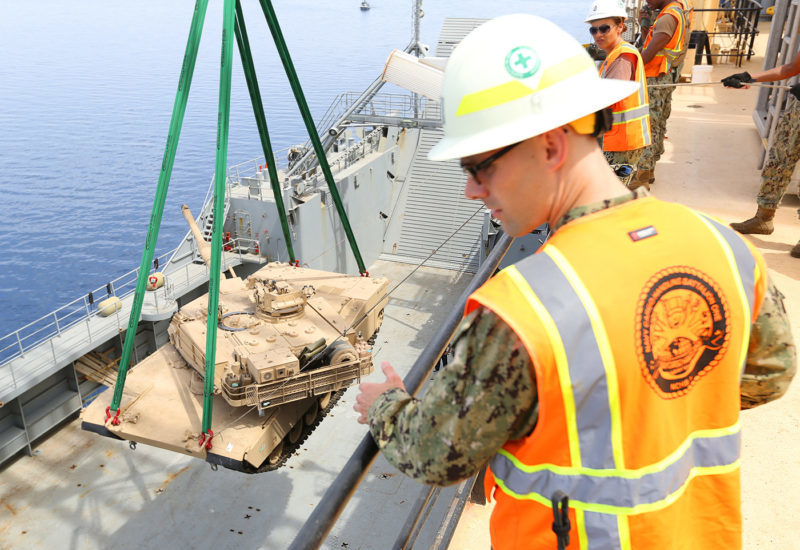Escalating costs and declining cargos continue to erode the U.S.-flag cargo fleet, and contribute to a potential shortfall of 1,800 U.S. citizen mariners to support sealift during a prolonged military action, according to a new report from the Government Accountability Office.
Congress directed the U.S. Department of Transportation in 2014 to develop national maritime strategies to keep the U.S.-flag fleet sustainable. Report authors said they learned DOT and Maritime Administration officials have finished much of that draft work, but it still needs review by the Trump administration,
The GAO acknowledges up front that the higher cost of maintaining U.S.-registered and flagged ships with higher-paid U.S. crews make the fleet less competitive. Those costs have continued to rise, and it is hard to make up the difference with U.S. government subsidies.
Government support for the fleet includes annual stipends to vessel owners through the Maritime Security Program (MSP), and cargo preference requirements that federal agencies transport a certain percentage of their government cargos using U.S.-flag vessels.
That support is to ensure the Department of Defense has enough privately owned U.S. ships to rapidly ramp up sealift capability in a crisis. Defense officials say the annual cost of those subsidies is far less than the expense of building and maintaining dedicated sealift vessels, such as roll-on/roll-off carriers needed to carry tanks and heavy vehicles to a war zone, the GAO noted.
Even with the direct subsidy of MSP, “maintaining the financial viability of U.S.-flag vessels is a challenge,” the GAO analysts reported.
Marad officials calculated the differential between operating a U.S. flag and foreign flag vessel increased from an average $4.8 million a year in 2009-2010 to between $6.2 million and $6.5 million in 2018.
Meanwhile, government cargo volumes have fallen. In response, Congress increased the MSP stipend from $3.5 million per vessel in 2016 to $4.99 million in 2017. That provided some temporary stability but Marad officials say the negative trends in operating costs and cargos are continuing, the GAO report says.
“Representatives from maritime unions that we interviewed acknowledged that labor costs have risen and also noted that one factor contributing to higher labor costs in the United States is that operators are required to cover retirement benefits for employees,” GAO analysts wrote. “These representatives stated that such benefits are paid by the government in some other countries. In addition to labor costs, MSP vessel operators also mentioned that increasing insurance and maintenance and repair costs are also factors.”
Government agencies that are required to use the ships, such as the USAID food aid program, told the GAO those costs reduce the amount of money they can spend on providing aid.
The trend of increasing costs and declining government cargos may already be creating a negative feedback that actually reduces the number of U.S. flag vessels, the report warns.
“According to a 2015 Marad report on the effect of declining cargo preference volumes, vessel operators that reflagged vessels from the U.S. flag to a foreign flag, or retired vessels in recent years said that the primary reason for doing so was the loss of government cargo,” the report notes, adding that it is not known exactly how many ships had left the U.S. flag. “One vessel operator we spoke with stated that it removed five vessels from the U.S.- flag registry due to a decline in food aid shipments and an increase in the cost of operating under the U.S flag.”
The long-term decline started with the end of the Cold War and U.S. military drawdown during the 1990s – the military generates some 70% of preference cargo. U.S. food aid exports have declined to due to reduced funding, fluctuating commodity prices and other factors.
With less work, there are fewer licensed U.S. mariners. A Marad working group estimated that in a long-term military commitment overseas, the U.S. might come up short 1,800 mariners to fully crew available ships, the report says.



.JPG.small.400x400.jpg)

